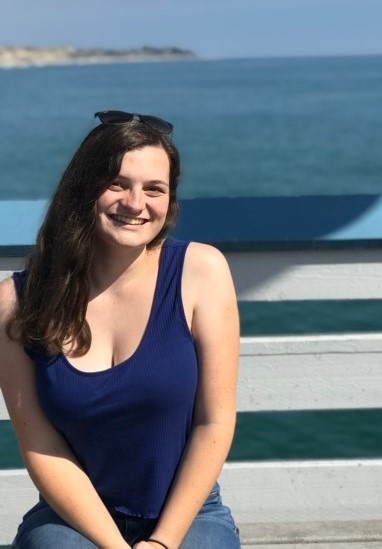
Claire Eichen
- Expert Role: Rookie
- Major: Human Biology
- Class: Graduate Student
- Hometown: Mission Viejo, California
Why is this humanitarian work important to you?
In a humanitarian crisis, we should help individuals who are missing reunite with their families. Sometimes this may not be possible. When this is not possible, we should strive to give an individual their identity as well as give their families closure through the return of their remains. Providing this assistance to serve the community is something that initially interested me in forensic anthropology. Providing a family member with the knowledge of their passing and having the opportunity to plan funerary services is something that everyone deserves. Many of the family members in a humanitarian crisis may be in a variety of situations. Some individuals may be unaware their loved one is missing and are hoping to contact them. Others may know that something is wrong and are seeking answers. Regardless of the situation, it is important to assist those that are looking for help, whether that be in the form of connection, closure, or understanding.
What do you hope to gain from this experience?
I hope I will gain a better understanding of the challenges that migrants face. Though we will be going into this environment well-prepared and with the ability to easily seek help if necessary. Migrants face these difficulties without those assurances. Furthermore, by interacting with individuals assisting at the border, it will provide a unique opportunity to learn about this issue within its context. Much of what I have learned about the migrant crisis comes from popular media and secondhand accounts. The ability to learn from those who are directly affected by this issue will be extremely impactful.
What are some of the biggest challenges you will face while in Texas?
One of the biggest challenges I will face while in Texas is traveling and working in sometimes unforgiving conditions. While I have experienced extreme temperatures, moving through harsh terrain and vegetation will be an eye-opening experience. Another challenge will be the emotions associated with this trip. I pride myself on being an empathetic person and I know that the harsh realities of this issue will be difficult to come to terms with.
What’s one thing people probably don’t know about you until they’ve known you a long time?
While I was in high school, I went to about 20 concerts in a single year.
When did you know you wanted to pursue human biology as a degree, and how did you become interested in forensics?
As a child, I was extremely interested in Egyptology and archeology. The details of human culture and excavation still fascinate me to this day. When I was about 8 or 9 years old, Forensic Anthropology was first introduced to me when my parents began watching the Bones tv show. It was a field which combined my interest of archaeology with the ability to help others. I continued to learn more and eventually pursued a Bachelor of Arts in Anthropology as my undergraduate degree. When I began to think about pursing a master’s degree, I knew that I wanted to find a program where I could be more involved in forensic casework and see what my potential future career might look like. The Master of Science in Human Biology was recommended to me by my undergraduate advisor as an opportunity to do just that.
What advice would you give other students interested in pursuing a human biology degree at UIndy?
My main advice would be to always ask people about things that you would like to know more about. For example, if you are taking a class and a professor mentions research that interests you, try asking them about it. You will be surprised with the information you will gain and the opportunities you can learn about when you ask questions.
What makes UIndy’s human biology program distinctive?
The UIndy human biology program is distinctive because the program focuses on offering multiple opportunities to gain real-world experience in the fields that you may want to pursue. This could include participating in or creating research projects as well as assisting with forensic casework.